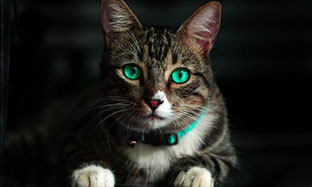
Welcoming a puppy or a kitten in your home: practical tips before your pet’s arrival
Adopting a puppy or kitten is an important step that will engage you for many years. A good start is important as it conditions the future relationship. To start well in life with your puppy or your kitten is reasoned prior to the adoption process and therefore before the arrival of the young pet.
Before “giving in”, it is important to ask yourself the right questions, without complacency. Will we have enough time to take care of him, a sufficient budget to cope with current and unexpected care, the living conditions adapted to his development… A pet requires a significant and sustainable investment in all respects.
In anticipation of his arrival, it will be necessary to carry out a minimum of shopping (bowl, leash, basket…) to welcome him in good conditions.
A puppy or kitten that arrives in a new home is naturally lost and anxious. He undergoes a radical change of environment, leaves his mother and, more importantly, his siblings, and potentially changes living environments (breeding in the countryside and life in a city for example).
All these changes are disruptive and you will have to help him get through them. For this, you will have to be present and benevolent, offer sources of heat (possibly with hot water bottles), give gentle and friendly contacts.
Contrary to what is often heard, it is possible to keep your puppy or your kitten in your room the first nights to reassure them and avoid further trauma. This practice can help establish a strong bond of attachment with your companion.
In both reception and attitude, everything has to be done in order to provide a welcoming and secure environment for the newcomer. All the potentially aversive acts (grooming, bathing, prolonged isolation…) should be postponed.
Learning (cleanliness, education…) will be done gradually and often slowly. With a young animal, patience is always in order.
A young animal is an explorer in power and so you will have to be careful to keep toxic products under lock. You should also watch out for balconies and other dangerous areas to prevent any accident.
1. What should I consider before adopting a puppy or kitten?
Welcoming a puppy or welcoming a kitten into your home is a long-term commitment that goes beyond the initial excitement. Before adopting, ask yourself:
- Do I have the time and energy to care for a young animal every day?
- Can I afford veterinary care, vaccinations, food, grooming, and unexpected medical costs?
- Is my living environment suitable for a growing pet?
- Are all family members on board with the responsibilities?
Careful thought before adoption sets the foundation for a lifelong, positive relationship with your pet.
2. Should I let my new puppy or kitten sleep in my room?
Yes, especially in the first few nights. Welcoming a puppy or welcoming a kitten means helping them adjust to a new and unfamiliar environment. Being near you at night can comfort them, reduce anxiety, and help them settle. While it's okay to allow them to sleep in your room temporarily, set clear boundaries if you don't intend for that to be a permanent arrangement.
3. What precautions should I take to ensure my pet's safety at home?
New puppies and kittens are naturally curious and prone to exploring (and chewing!). To make your home safe:
- Lock away all toxic cleaning supplies, human medications, and dangerous plants.
- Use safety gates to block off unsafe areas.
- Secure windows, balconies, and stairways.
- Hide electrical cords and small objects that could be swallowed.
Welcoming a puppy or welcoming a kitten also means childproofing your home—for pets.
4. What items do I need to prepare before bringing a puppy or kitten home?
Before welcoming a puppy or welcoming a kitten, ensure you're ready with the following essentials:
- Food and water bowls
- Age-appropriate pet food
- A comfortable bed or crate
- Toys for stimulation
- Litter box and litter (for kittens)
- Collar, leash, and ID tag (for puppies)
- Grooming tools
- Cleaning supplies for accidents
Having these items ready helps create a smooth transition and shows your new pet that they're entering a safe, welcoming space.


